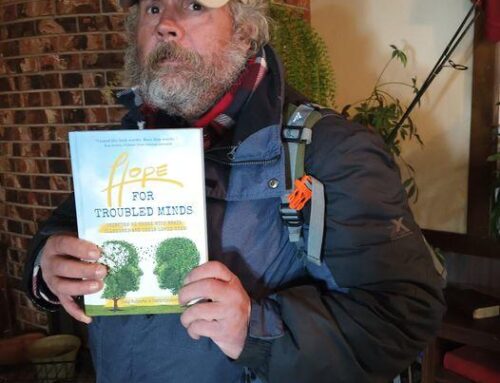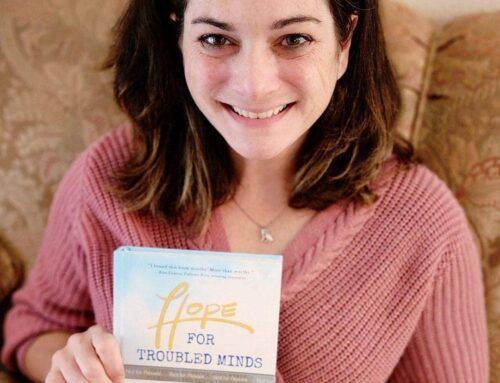Near the end of 2019, I completed work on a draft manuscript for my second book. I had written Delight in Disorder while my brain was still in a fog. As my editor put it, I needed to walk the reader through the rooms of my bipolar mind. This second book had the working title of From Despair to Delight: Stories to cultivate compassion and foster friendship with those impacted by mental illness. It was also composed as a memoir, but one that more readily flowed with my story as a man of faith living with a serious mental illness. My intent with the first book was to help those feeling disconnected with faith to reconnect. My aim with this book is to help pastors and church leaders build a sanctuary for those with troubled minds.
I felt good about what I had written. So good, in fact, that I sent it off to a major publisher. The editor responded with high praise for my writing, but said a memoir would not be a good fit for them. She went on to say, however —
“I suggest you consider whether you want to write one that instead comes alongside readers and specifically aims to help them along their journey in a specific way.”
At first this discouraged me. I’ve spent the bulk of my 57 years writing about my favorite subject — me. I ignored my professors advice to write from any other point of view than the first person. The adages “Know thyself.” and “Write what you know.” merge in my mind and shape my literary output. It wasn’t so much that I questioned the value of another perspective, particularly one recommended by one I consider tops in my field, I just didn’t know if I had it in me.
So what did I do? I did what many self-respecting persons with bipolar do. I went into a deep depression. Ugh.
But enough about me! Let’s talk about you.
Still in a fog, I looked beyond myself and sent out a single question to over 80 persons (including some of you) —
What is one burning question you have about helping someone impacted by serious mental illness?
The responses have been tremendous, both in number and in depth. Clearly people who read what I write are listening to their hearts and processing it with their minds and they are eager to engage in dialogue. I now see that one of my primary tasks as a Faith & Mental Health Advocate is to raise questions, listen to concerns, and respond with compassion.
In the next season of my vocation, I will be doing just this. Starting with this post. One reader raised this burning question about helping someone with a serious mental illness —
How do you get them to trust you so you can help? ~ B.M.
Trust is a huge issue in any relationship. Trust requires an investment of time, energy, and attention. Many who have a serious mental illness are troubled by what we see as weakness. We struggle so hard to avoid the label of disabled that when a sincere friend wants to help us from a pure heart, we push back. As a result, we resist growing together in what could be mutually beneficial ways.
I believe one aspect of building trust with some who has a mental illness is to get to know the person behind the diagnosis. When Jesus encountered a Samaritan woman drawing water at a well in the hottest part of the day, he did not let her obviously questionable character get in the way of reaching out to her. He went out of his way to acknowledge her and ask her for a favor. She was resistant for some time, obviously having trust issues from being wounded in the past. But Jesus persisted. In what seems a cat-and-mouse game, Jesus reveals he knows all about her broken relationships and does not judge her for this. He continues to address her with respect, offering her the blessing of his abiding presence.
Our time, energy, and attention is more limited than Christ’s, but it is just as essential. And when we share it with those who need help but don’t want it, the results can be amazing.
What is your burning question about helping someone impacted by mental illness?
Discover more from Delight in Disorder
Subscribe to get the latest posts sent to your email.







